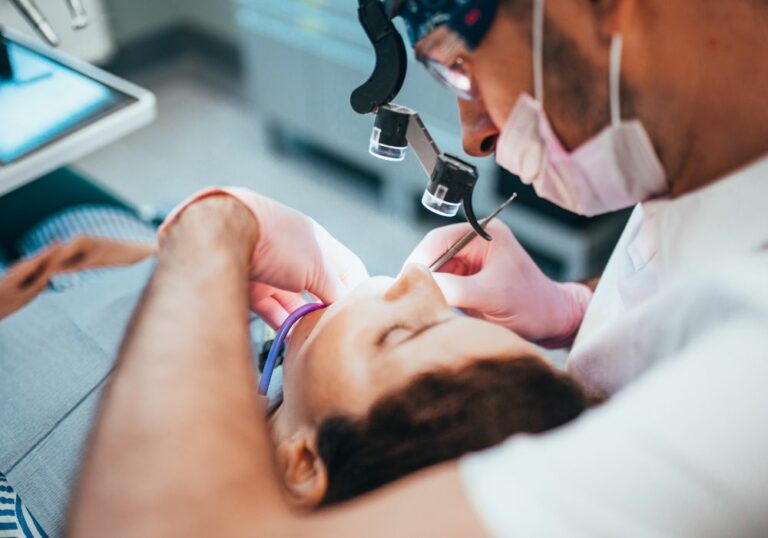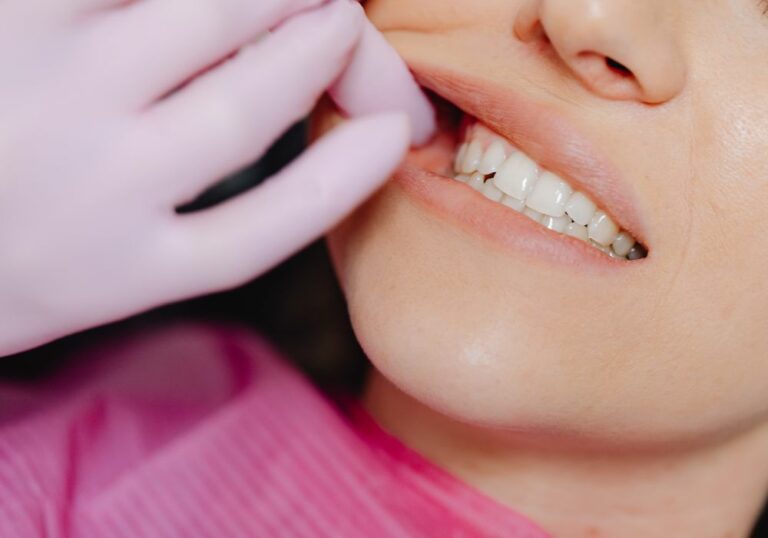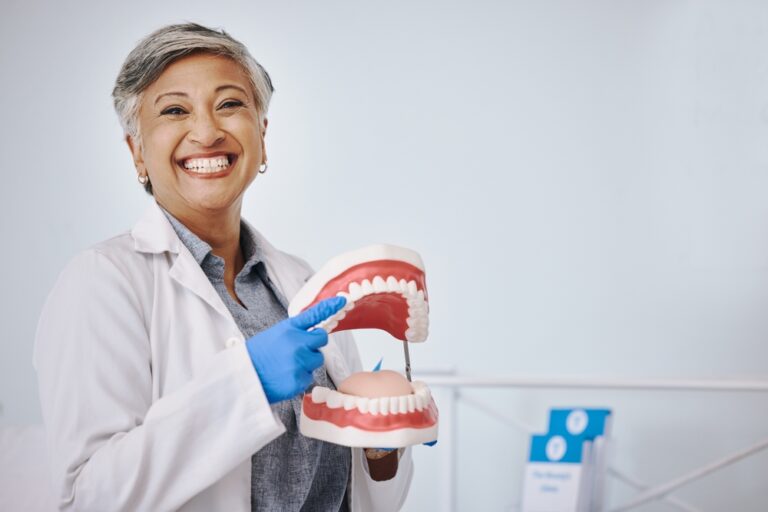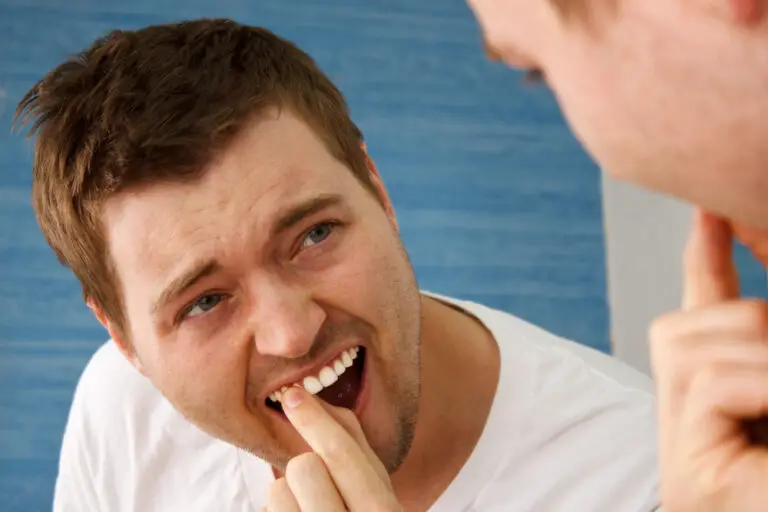Do you wake up with a sore jaw or experience headaches throughout the day? You might be clenching your teeth, which can cause discomfort and even damage to your teeth. Teeth clenching, also known as bruxism, can happen during the day or at night while you sleep. It is often a subconscious habit that can be difficult to break.
If you’re experiencing tooth pain from clenching, there are steps you can take to alleviate the discomfort. One option is to wear a mouthguard, which can help protect your teeth from damage caused by clenching. Additionally, practicing relaxation techniques such as deep breathing or meditation can help reduce stress and tension that may contribute to teeth clenching. It’s important to address teeth clenching to prevent further damage and discomfort.
Understanding Teeth Clenching
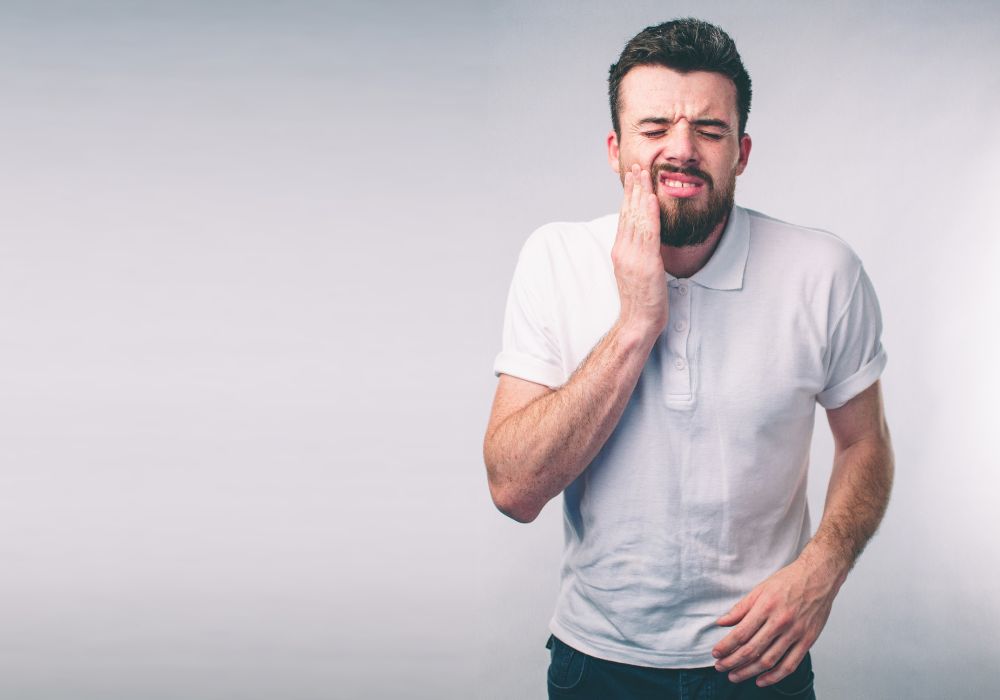
Teeth clenching, also known as bruxism, is a common condition where you grind, gnash, or clench your teeth. It can happen during the day or at night while you sleep, and it can be caused by a variety of factors.
Causes of Teeth Clenching
There are several reasons why you may be clenching your teeth. Here are some of the most common causes:
- Stress and anxiety
- Misaligned teeth or jaw
- Sleep disorders, such as sleep apnea
- Medications, such as antidepressants
- Alcohol and drug use
- Medical conditions, such as Parkinson’s disease
Symptoms of Teeth Clenching
Teeth clenching can cause a variety of symptoms, including:
- Headaches
- Jaw pain or stiffness
- Tooth sensitivity or pain
- Earache
- Sleep disturbances
- Neck and shoulder pain
If you are experiencing any of these symptoms, it’s important to talk to your dentist or doctor. They can help you determine the cause of your teeth clenching and recommend appropriate treatment options.
In the next section, we’ll explore some ways to relieve the pain and discomfort caused by teeth clenching.
Prevention Strategies
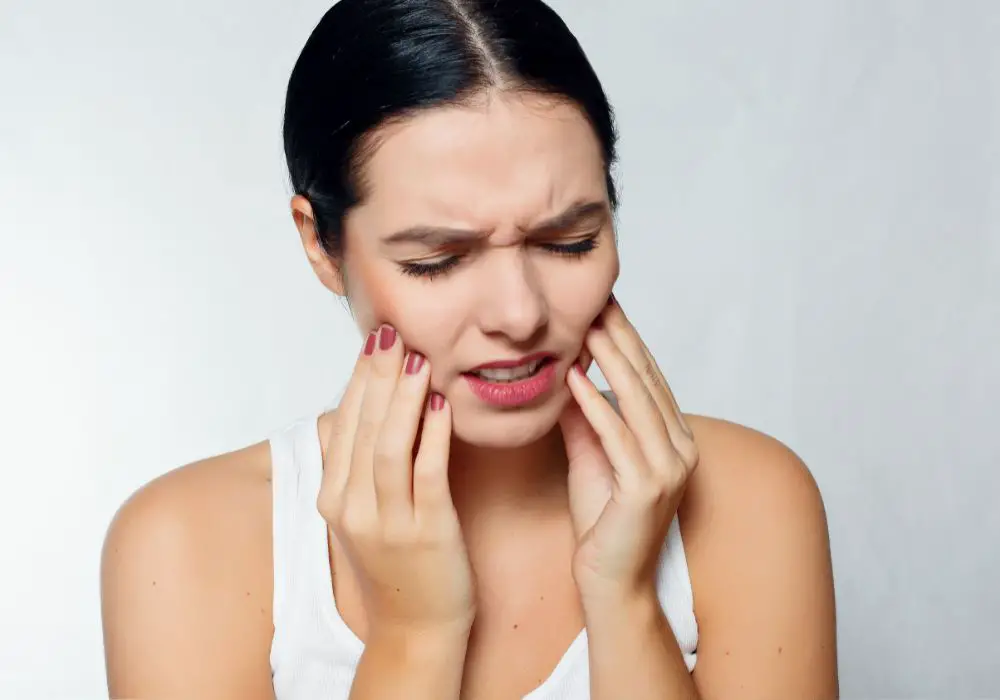
If you’re experiencing teeth pain due to clenching, there are several prevention strategies you can adopt to alleviate the discomfort. These strategies include lifestyle changes and stress management techniques.
Lifestyle Changes
Lifestyle changes can help prevent teeth pain caused by clenching. Here are some changes you can make:
- Avoid chewing gum or biting on hard objects like pens or pencils.
- Try not to clench your teeth during the day. Be mindful of your jaw and try to relax it.
- Make sure you’re getting enough sleep. Lack of sleep can lead to stress and tension, which can cause teeth clenching.
Stress Management Techniques
Stress is a common cause of teeth clenching, so managing stress can help prevent teeth pain. Here are some stress management techniques you can try:
- Practice relaxation techniques like deep breathing, meditation, or yoga.
- Exercise regularly to reduce stress and tension.
- Identify the sources of stress in your life and try to reduce or eliminate them.
- Seek professional help if you’re experiencing chronic stress or anxiety.
By adopting these prevention strategies, you can reduce the likelihood of experiencing teeth pain due to clenching. Remember to be patient and persistent in your efforts to manage your teeth clenching.
Medical Interventions
If your teeth clenching is causing pain, there are some medical interventions that could help alleviate the discomfort.
Dental Appliances
Your dentist may recommend a dental appliance, such as a nightguard or splint, which can help protect your teeth from the damage caused by clenching and grinding. These appliances are usually custom-made to fit your mouth and can be worn while you sleep.
A nightguard is a soft, plastic appliance that fits over your upper or lower teeth. It provides a cushion between your teeth, reducing the force of clenching and grinding. A splint is a harder, acrylic appliance that is also custom-made to fit your teeth. It can help reposition your jaw to reduce the pressure on your teeth.
Medication Options
In some cases, medication may be used to help manage the pain associated with teeth clenching. Your doctor or dentist may recommend over-the-counter pain relievers, such as ibuprofen or acetaminophen, to help alleviate discomfort.
Muscle relaxants, such as benzodiazepines or cyclobenzaprine, may also be prescribed to help relax the muscles in your jaw. However, these medications can cause drowsiness and should only be used under the supervision of a healthcare professional.
In rare cases, Botox injections may be used to help relax the muscles in your jaw. However, this treatment is not commonly used and should only be considered after other options have been explored.
Remember, before pursuing any medical intervention, it’s important to consult with your healthcare provider to determine the best course of action for your individual needs.
Alternative Therapies
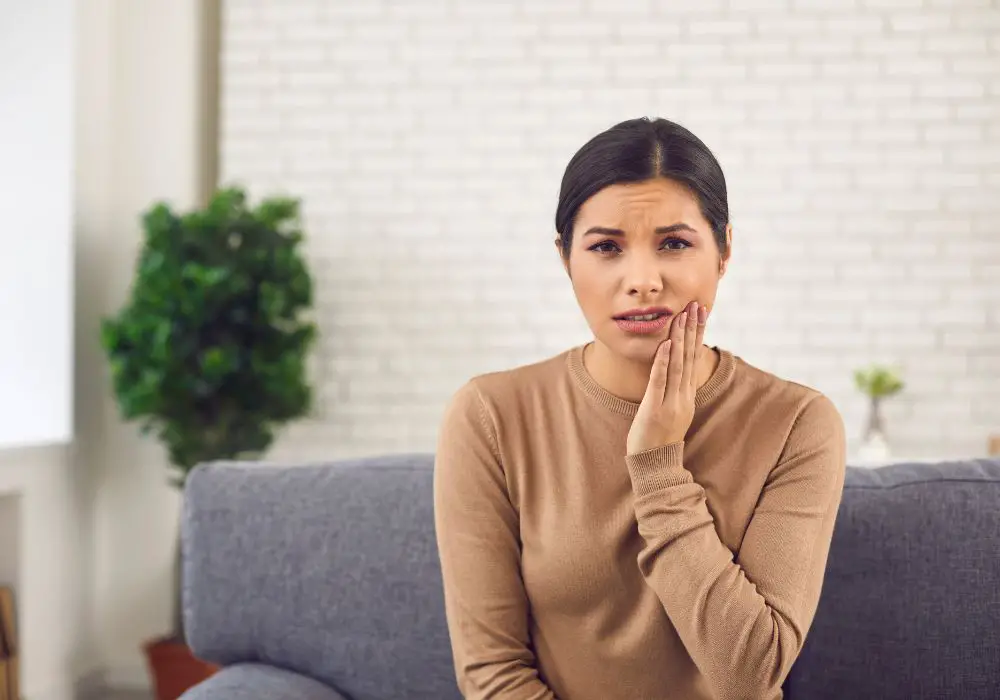
If you’re experiencing teeth pain due to clenching, there are alternative therapies available that may help alleviate your symptoms. Here are two options to consider:
Physical Therapy
Physical therapy can be an effective treatment for teeth clenching. A physical therapist can help you identify the muscles that are causing the clenching and teach you exercises to help relax them. They may also use techniques such as massage or electrical stimulation to help reduce tension in the muscles.
Biofeedback
Biofeedback is a technique that helps you learn to control your body’s responses to stress. A biofeedback therapist will attach electrodes to your skin to monitor your muscle tension and other body functions. They will then teach you techniques to help you relax these muscles and reduce your stress levels. With practice, you can learn to control your muscle tension and reduce your teeth clenching.
It’s important to note that alternative therapies may not work for everyone, and it may take some time to see results. It’s also important to consult with your dentist or doctor before trying any new treatments, as they can help you determine the best course of action for your specific situation.
When to Consult a Professional
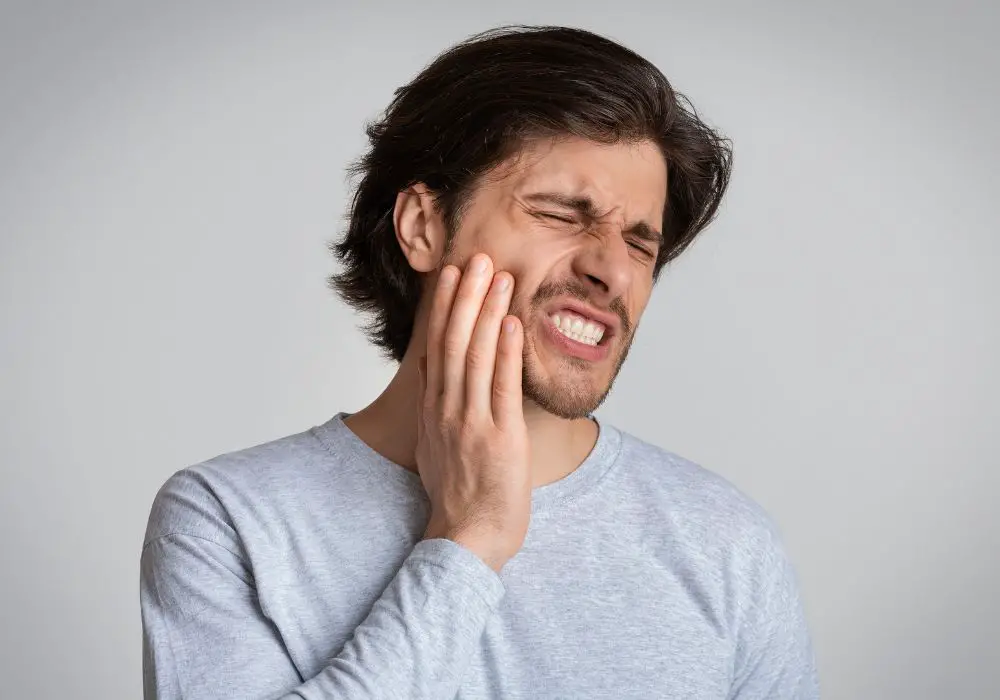
If you are experiencing persistent tooth pain or discomfort due to clenching, it may be time to consult a dental professional. Here are a few signs that it’s time to seek help:
Your pain is severe or chronic
If your tooth pain is severe or has been going on for an extended period of time, it’s important to seek professional help. Your dentist can evaluate your teeth and recommend a treatment plan to alleviate your pain.
You have visible damage to your teeth
If you can see visible damage to your teeth, such as chips or cracks, it’s a good idea to consult a dentist. They can help repair the damage and prevent further harm to your teeth.
You have other symptoms
If you are experiencing other symptoms in addition to tooth pain, such as headaches or jaw pain, it may be a sign of a more serious issue. A dental professional can help diagnose the problem and recommend appropriate treatment.
You have tried at-home remedies without success
If you have tried at-home remedies such as warm compresses or relaxation techniques, but are still experiencing tooth pain, it’s time to consult a professional. They can help determine the underlying cause of your pain and recommend more effective treatments.
Remember, it’s important to take care of your teeth and seek professional help when necessary. By working with a dental professional, you can alleviate your pain and prevent further damage to your teeth.
Frequently Asked Questions
How can you prevent your teeth from hurting when you clench?
To prevent your teeth from hurting when you clench, you should avoid chewing gum or hard foods that can put pressure on your teeth. You can also try to reduce stress levels and practice relaxation techniques to reduce tension in your jaw muscles. Additionally, maintaining good oral hygiene and visiting your dentist regularly can help prevent tooth damage and pain.
What are some techniques to stop clenching your jaw?
Some techniques to stop clenching your jaw include practicing good posture, avoiding caffeine and alcohol before bedtime, and using a warm compress on your jaw muscles. You can also try to become more aware of when you are clenching your teeth and consciously relax your jaw muscles.
Are there any exercises to help with teeth clenching?
Yes, there are exercises that can help with teeth clenching. One exercise involves placing the tip of your tongue behind your front teeth and sliding it back along the roof of your mouth. This can help to relax your jaw muscles. Another exercise involves opening and closing your mouth while placing your tongue between your teeth to prevent clenching.
What are the best ways to manage tooth pain from clenching?
The best ways to manage tooth pain from clenching include using over-the-counter pain relievers, applying a cold compress to the affected area, and avoiding hard or crunchy foods. You can also try using a mouthguard to protect your teeth from further damage.
Is there a mouthguard that can help with teeth clenching?
Yes, there are mouthguards that can help with teeth clenching. A custom-fitted mouthguard from your dentist can help to protect your teeth from damage and reduce clenching. Over-the-counter mouthguards are also available, but they may not fit as well or provide as much protection as a custom-fitted mouthguard.
What are some relaxation techniques to reduce teeth clenching?
Some relaxation techniques to reduce teeth clenching include deep breathing exercises, meditation, and yoga. You can also try progressive muscle relaxation, where you tense and relax different muscle groups in your body to reduce overall tension. Additionally, getting enough sleep and regular exercise can help to reduce stress levels and prevent teeth clenching.

